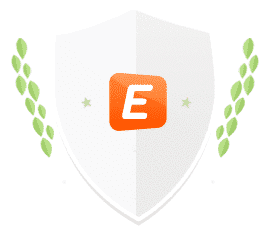- Cold Shower Benefits for Your Health [Internet]. Healthline. 2017 [cited 2021 Feb 1]. Available from: https://www.healthline.com/health/cold-shower-benefits
- Newman T. The fitness placebo: Can you really think yourself fit? [Internet]. Medical News Today. 2017 [cited 2021 Feb 1]. Available from: https://www.medicalnewstoday.com/articles/318550
- Government of Canada CC for OH and S. Cold Environments - Health Effects and First Aid : OSH Answers [Internet]. 2021 [cited 2021 Feb 1]. Available from: https://www.ccohs.ca/
- Chondrus crispus. In: Wikipedia [Internet]. 2021 [cited 2021 Feb 1]. Available from: https://en.wikipedia.org/w/index.php?title=Chondrus_crispus&oldid=999732073
- Goldsby TL, Goldsby ME, McWalters M, Mills PJ. Effects of singing bowl sound meditation on mood, tension, and well-being: an observational study. Journal of evidence-based complementary & alternative medicine. 2017 Jul;22(3):401-6.
- Milbury K, Chaoul A, Biegler K, Wangyal T, Spelman A, Meyers CA, Arun B, Palmer JL, Taylor J, Cohen L. Tibetan sound meditation for cognitive dysfunction: results of a randomized controlled pilot trial. Psycho‐Oncology. 2013 Oct;22(10):2354-63.
- Diamond L. The benefits of yoga in improving health. Prim Health Care. 2012;22(2).
- Maller C, Townsend M. Children’s mental health and wellbeing and hands-on contact with nature. Int J Learn. 2006;12(4):359–72.
- Wenborn J. Engaging with animals and promoting wellbeing. Nurs Resid Care. 2004;6(4):183–4.
- Herrick CM, Ainsworth AD. Invest in Yourself: Yoga as a Self‐Care Strategy. In Wiley Online Library; 2000. p. 32–6.
- Musso P, Chiappini E, Bernardini R. Human microbiome and allergic diseases in children: pathogenetic role and therapeutic options. Current pediatric reviews. 2020 May 1;16(2):89-94.
- Blum WE, Zechmeister-Boltenstern S, Keiblinger KM. Does soil contribute to the human gut microbiome?. Microorganisms. 2019 Sep;7(9):287.
- Chada N, Romanos J, Hilton R, Suppes G, Burress J, Pfeifer P. Activated carbon monoliths for methane storage. In 2012. p. W33-012.
- Activated Charcoal: Uses, Side Effects, Interactions, Dosage, and Warning [Internet]. WebMD. [cited 2021 Feb 1]. Available from: https://www.webmd.com/vitamins/ai/ingredientmono-269/activated-charcoal
- Electronic screen alert: Avoid this vision risk [Internet]. Harvard Health. 2017 [cited 2021 Jan 31]. Available from: https://www.health.harvard.edu/diseases-and-conditions/electronic-screen-alert-avoid-this-vision-risk










